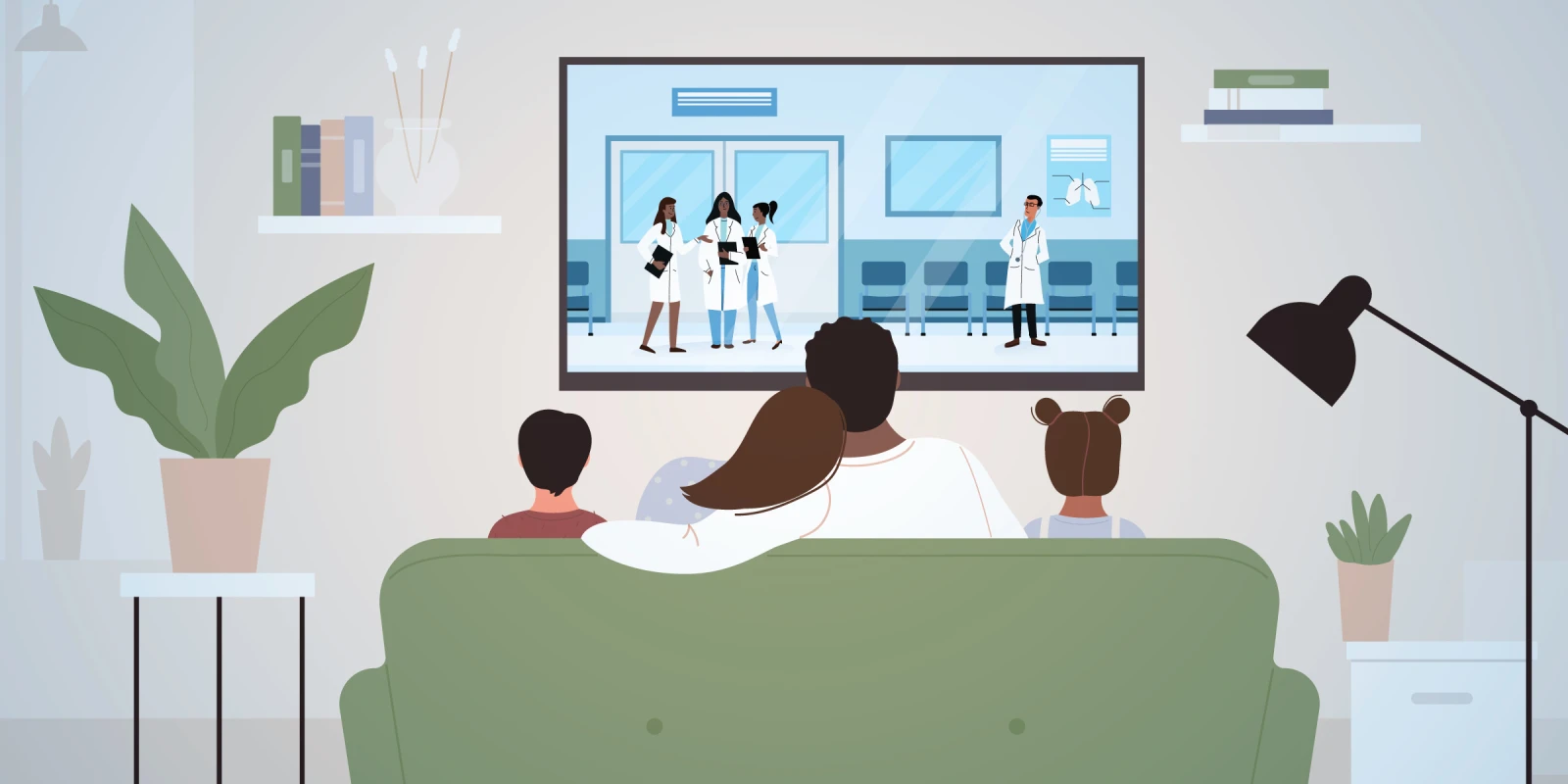Like many, I’ve spent this past pandemic year consuming far more media than usual. The lack of social gatherings and viable outdoor activities led me to binge watch a lot of great TV, sample movies I wouldn’t normally even consider, waste far too many hours on the internet, and scroll through countless Instagram feeds of people I don’t know (“Honey, you have to see what this guy does with two bowling balls!”). All of this consumption has led me to consider the insidious influence of media on our lives. I think media affects us and influences us more than we realize — which is exactly what advertisers are betting billions of dollars on.
The one area of my life that I hadn’t considered the media's effect on is my career. I certainly have real life role models, as we all do, and I can name them and the lessons I learned from them. But as I thought more about it, I started to wonder if the fictional physicians I encountered in books, movies, TV, and theater had any significant influence on me.
Curiously, for an inveterate reader and former English major, I don’t have many instances of fictional physicians who made a deep impression on me. To be sure, the flesh-and-blood physicians who wrote (and write) — Lewis Thomas, Walker Percy, Oliver Sacks, and, more recently, Atul Gawande — were a source of inspiration for me as a physician-writer. But I never connected with any fictional literary doctor.
The same holds true for movies and theater, of which I was an avid participant in high school and college. There are few films or plays that I can even remember that featured a doctor as the protagonist.
But, as a child of the ‘60s and ‘70s, I was reared on television, and there was a veritable smorgasbord of medical characters. I fondly remember watching avuncular Dr. Marcus Welby and his hip young, motorcycle-riding associate, Dr. Steve Kiley; the quick-thinking paramedics Gage and DeSoto on the old “Emergency” show; and the wise-cracking medical examiner, Quincy. Later on, while I was in medical school, I enjoyed “St. Elsewhere,” and even the first few years of “ER” after residency. By the time newer shows like “Grey’s Anatomy” and “Chicago Med” arrived, I had grown dissatisfied with watching medical dramas.
But, still, none of those shows really influenced me much. I was entertained by them, but not moved. One show that did stand out for me, however, was “M.A.S.H.” The surgeons of the 4077th were by no means the reason I became a doctor, but they did have some influence. I was drawn especially to Pierce's, McIntyre's, and Honeycutt’s commitment to all patients, regardless of whether they were the American and U.N. soldiers or the “enemy” North Koreans (a stand-in for the North Vietnamese at the time). I know the show took a lot of flack for its liberal leanings, but it wasn’t the politics that captivated me — it was the humanity. Whether it was treating each patient with the respect and dignity they deserved, or keeping that dying soldier alive until Dec. 26 so his kids wouldn’t remember Christmas as the day dad died; or the gentle way they dealt with mental illness, both real (the pilot who thought he was Jesus Christ) and imagined (Klinger and his wacky attempts to get out of the Army).
It’s unclear to me which came first: my natural tendency toward this kind of practice of medicine, or my exposure to it on “M.A.S.H.”. More likely, it was the former. But either way, Hawkeye, Trapper John, and BJ, especially in contrast to Majors Burns and Winchester, were role models in some way for me, as caring, humane physicians. And the other characters, too. Faced with the absurdity of war against an enemy halfway around the world that posed no real threat to me or my country, wouldn’t you be crazy not to try to get out of fighting? It made even the non-physician Klinger an admirable character.
The clinical cases in “M.A.S.H.,” like a lot of medicine in the media, were time-constricted, often exaggerated, and usually lacking in key details. But the care those doctors expressed, even in non-clinical situations, is what stuck with me — sitting late at night at the bedside of a sick soldier, doing everything they could to figure out why some poor young private wasn’t getting better, keeping a Korean boy thought to be an orphan in the unit longer than necessary to keep him from going to an orphanage. It sounds sappy, and I don’t want to overemphasize their significance, but I think those images, and others like them, at an impressionable age, influenced the type of doctor I became, or at least attempted to become.
Did fictional characters influence you at all? Or do you think that, like Corporal Klinger, I’m acting crazy? Tell us about your influences in the comments!
A practicing pediatrician for over 26 years, Dr. Ruben J. Rucoba currently serves as Director of Medical Services for PediaTrust, a large pediatric "supergroup" in the Chicago area. He also established his own thriving medical writing and editing business in 2010. He has no conflicts of interest to declare. Dr. Rucoba was a 2019–2020 Doximity Op-Med Fellow and is a 2020–2021 Doximity Op-Med Fellow.







